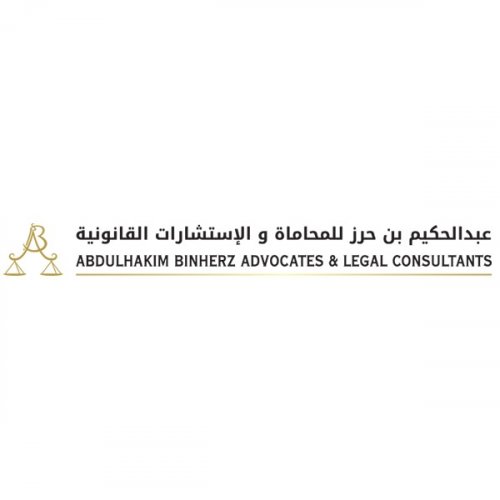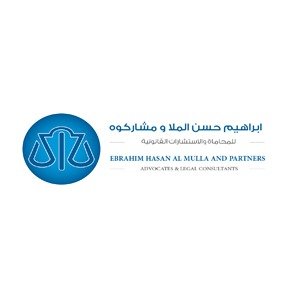Best Corporate & Commercial Lawyers in Ras al-Khaimah
Share your needs with us, get contacted by law firms.
Free. Takes 2 min.
List of the best lawyers in Ras al-Khaimah, United Arab Emirates
United Arab Emirates Corporate & Commercial Legal Articles
Browse our 6 legal articles about Corporate & Commercial in United Arab Emirates written by expert lawyers.
- How Can Businesses Comply with AI and Legal Tech Laws in the UAE? (11 Practical Steps)
- AI systems and legal-tech tools are altering how companies function throughout the UAE. Yet, as innovation increases, so does the need for effective AI governance and compliance with local technology and data protection regulations. The UAE’s developing legislative environment compels enterprises to manage risks, safeguard personal data and promote transparency... Read more →
- 6 Risks and Consequences of AI Non-Compliance in the UAE
- Artificial Intelligence (AI) is transforming the legal and commercial landscape across the UAE, but rapid adoption also brings new responsibilities. With the nation’s strong commitment to innovation and digital transformation, reflected in initiatives like the UAE National Strategy for Artificial Intelligence 2031, regulators are also introducing more robust rules for... Read more →
- How Do I Resolve a Commercial Contract Dispute in the UAE?
- Table of ContentsIntroduction: Navigating Business DisagreementsUnderstanding the Legal Framework in 2025A Step-by-Step Guide to Dispute ResolutionStep One: Review the Contract ThoroughlyStep Two: Attempt Negotiation and MediationStep Three: Arbitration in the UAEStep Four: Litigation in UAE CourtsCommon Causes of Commercial Contract DisputesThe Role of Free Zones in Dispute ResolutionPractical Tips for... Read more →
About Corporate & Commercial Law in Ras al-Khaimah, United Arab Emirates
Corporate and commercial law in Ras al-Khaimah (RAK), one of the seven emirates of the United Arab Emirates (UAE), is a dynamic and vital field designed to regulate the operations, formation, and governance of businesses in the emirate. RAK has attracted significant foreign and local investment due to its strategic location, business-friendly environment, and regulatory framework. The emirate offers various options for company incorporation, including onshore, free zone, and offshore company structures, each governed by specific regulations. Laws in RAK aim to foster economic growth while ensuring compliance with national laws, especially the UAE Federal Law and related ministerial decrees.
Why You May Need a Lawyer
There are various situations where individuals and companies operating in RAK may require legal assistance in the corporate and commercial domain. Common reasons include:
- Choosing the correct business structure and navigating the company registration process
- Drafting, reviewing, or negotiating commercial contracts, shareholder agreements, and distribution deals
- Regulatory compliance, including anti-money laundering, economic substance, and beneficial ownership requirements
- Advising on mergers, acquisitions, joint ventures, and company restructuring
- Addressing disputes with business partners, suppliers, or clients through negotiation, arbitration, or litigation
- Safeguarding intellectual property, trademarks, and trade secrets
- Employment and labor law matters
- Dissolution or liquidation of companies and handling insolvency issues
- Understanding foreign ownership restrictions and local sponsor requirements
- Ensuring compliance with tax regulations, including VAT and corporate tax as per the UAE laws
Given the complexity and evolving nature of regulations, consulting a qualified corporate and commercial lawyer ensures your rights are protected and your business complies with local laws.
Local Laws Overview
Corporate and commercial activities in Ras al-Khaimah are primarily governed by federal UAE laws but are also subject to local regulations set by the RAK Department of Economic Development and free zone authorities such as the RAK Economic Zone (RAKEZ). Some key aspects include:
- Company Formation: Businesses can be set up as onshore (mainland), free zone, or offshore companies. Each has distinct regulations regarding ownership, permitted activities, corporate governance, and reporting obligations.
- Foreign Ownership: Following recent reforms, many business activities permit up to 100 percent foreign ownership, especially in free zones. Mainland companies may still require a local sponsor for certain sectors.
- Commercial Contracts: The UAE Civil Transactions Law and Commercial Transactions Law regulate business deals, with requirements for clear terms, dispute resolution, and enforceability.
- Employment Matters: Labor relations are mostly guided by Federal Law No. 33 of 2021 (the new UAE Labor Law), applicable in RAK and offering protections to both employers and employees.
- Taxation: The UAE has introduced VAT and, as of 2023, a new corporate tax regime. Companies operating in RAK must ensure compliance with relevant tax registration, reporting, and payment requirements.
- Dispute Resolution: RAK courts, as well as specialized arbitration and mediation centers, handle commercial disputes. Many contracts now include arbitration clauses in accordance with UAE and international arbitration norms.
- Anti-Money Laundering (AML): Strict AML and Know Your Customer (KYC) regulations are enforced, especially for financial and professional service providers.
Frequently Asked Questions
What are the main options for setting up a company in Ras al-Khaimah?
You can establish an onshore company (mainland), a free zone company (in zones like RAKEZ), or an offshore company. Each has unique benefits and requirements related to ownership, permissible activities, and taxation.
Can foreigners own 100 percent of a company in Ras al-Khaimah?
Yes, in many sectors and especially in free zones, foreigners can own 100 percent of the shares. In certain activities on the mainland, a local agent or partner may still be required.
What documents are required for company registration?
Typical requirements include passport copies, business plan, proof of address, Memorandum and Articles of Association, and in some cases, a No Objection Certificate from relevant agencies.
How are commercial disputes resolved in Ras al-Khaimah?
Disputes can be resolved through negotiation, mediation, arbitration, or litigation in RAK courts or other recognized arbitration centers, depending on the contract terms.
What taxes apply to businesses in Ras al-Khaimah?
The main taxes are Value Added Tax (five percent) and, from 2023 onwards, federal corporate income tax for certain businesses. Free zone and offshore companies may benefit from specific tax exemptions.
Are there specific regulations for employment contracts?
Employment is mainly regulated by the UAE Labor Law, which covers contract terms, termination, leaves, working hours, and end-of-service benefits. Certain free zones may have additional rules.
What is the process for dissolving a company?
Company dissolution involves settling disputes, paying outstanding debts, canceling licenses, and deregistering with local authorities. Legal and financial closure must be documented and approved.
Is intellectual property protected in RAK?
Yes, trademarks, patents, and copyrights can be registered and enforced under UAE federal laws, providing crucial protection to business assets.
What due diligence should I conduct before investing in RAK?
Due diligence should cover legal standing of partners, ownership structure, licenses, regulatory compliance, liabilities, and pending disputes. A lawyer can assist in comprehensive verification.
What are the advantages of establishing a business in a free zone?
Free zones offer benefits such as 100 percent foreign ownership, customs duty exemptions, simplified import-export processes, and flexible employment regulations.
Additional Resources
If you need further assistance, the following resources and organizations can be invaluable:
- Ras al-Khaimah Economic Zone (RAKEZ) Authority - oversees free zone company formation and regulation
- Ras al-Khaimah Department of Economic Development (RAK DED) - regulates mainland businesses and issues trade licenses
- UAE Ministry of Economy - provides commercial laws, guidelines, and company registration processes
- Ras al-Khaimah Courts and Judicial Department - handles commercial dispute resolution and litigation
- UAE Federal Tax Authority - oversees VAT and corporate tax obligations
- Chambers of Commerce and Industry - provides support and networking opportunities for businesses
Next Steps
If you require legal assistance with corporate or commercial matters in Ras al-Khaimah, consider the following steps:
- Clearly define your legal needs, such as company incorporation, contract drafting, dispute resolution, or regulatory compliance.
- Collect all relevant documents related to your business or issue at hand.
- Research and shortlist law firms or legal consultants experienced in RAK corporate law.
- Schedule a consultation to discuss your case and understand legal fees, timelines, and possible outcomes.
- Follow your lawyer's guidance to ensure full compliance with all local regulations and secure your business interests.
- Stay updated on changes in regulations that may impact your business to remain compliant and competitive.
Seeking professional legal advice can save costs, time, and potential liabilities while ensuring your business thrives in Ras al-Khaimah’s vibrant commercial landscape.
Lawzana helps you find the best lawyers and law firms in Ras al-Khaimah through a curated and pre-screened list of qualified legal professionals. Our platform offers rankings and detailed profiles of attorneys and law firms, allowing you to compare based on practice areas, including Corporate & Commercial, experience, and client feedback.
Each profile includes a description of the firm's areas of practice, client reviews, team members and partners, year of establishment, spoken languages, office locations, contact information, social media presence, and any published articles or resources. Most firms on our platform speak English and are experienced in both local and international legal matters.
Get a quote from top-rated law firms in Ras al-Khaimah, United Arab Emirates — quickly, securely, and without unnecessary hassle.
Disclaimer:
The information provided on this page is for general informational purposes only and does not constitute legal advice. While we strive to ensure the accuracy and relevance of the content, legal information may change over time, and interpretations of the law can vary. You should always consult with a qualified legal professional for advice specific to your situation.
We disclaim all liability for actions taken or not taken based on the content of this page. If you believe any information is incorrect or outdated, please contact us, and we will review and update it where appropriate.
Browse corporate & commercial law firms by service in Ras al-Khaimah, United Arab Emirates
Ras al-Khaimah, United Arab Emirates Attorneys in related practice areas.










